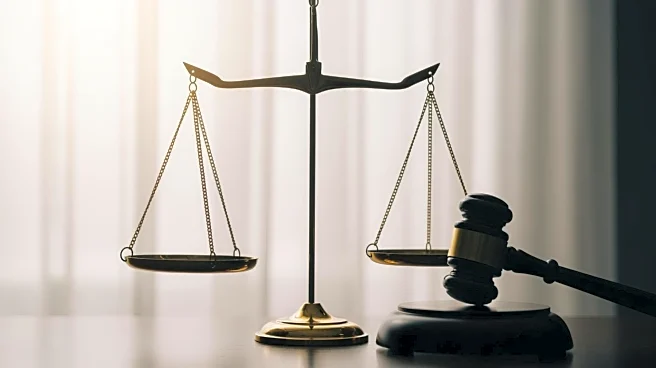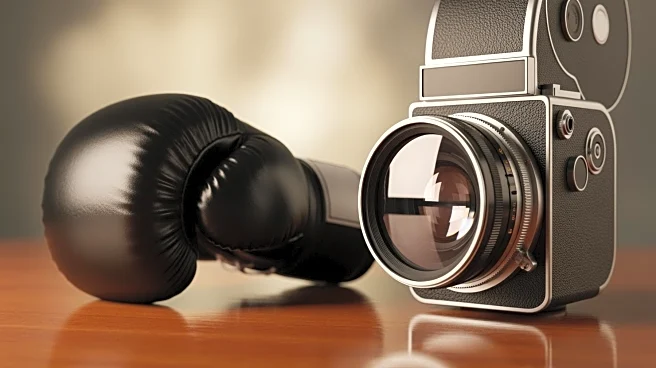What's Happening?
Former Portage Mayor James Snyder has filed a motion for a new trial on his conviction for obstructing the IRS. This move comes after the U.S. Supreme Court overturned a related bribery conviction, which Snyder's defense argues tainted the jury's perception
during his trial. The defense claims that the jury was exposed to extensive testimony and exhibits related to the bribery charge, which should not have been admissible in the tax obstruction case. Prosecutors have indicated their intention to drop the bribery charge and proceed with sentencing on the obstruction charge. The case has been ongoing for nearly nine years, with Snyder previously convicted of corruptly obstructing the IRS. The Supreme Court's decision highlighted that the payment Snyder received was a gratuity, not a bribe, impacting other high-profile cases.
Why It's Important?
The outcome of Snyder's motion for a new trial could have significant implications for legal standards in corruption cases. The Supreme Court's decision to overturn the bribery conviction underscores the fine line between legal gratuities and illegal bribes, potentially affecting how similar cases are prosecuted in the future. This case also highlights the complexities involved in long-standing legal battles and the impact of high court decisions on lower court rulings. For Snyder, a new trial could mean a chance to clear his name on the obstruction charge, while for prosecutors, it represents a challenge in maintaining the integrity of their case without the bribery conviction.
What's Next?
If the court grants Snyder a new trial, it could lead to further legal proceedings and delays in reaching a final resolution. Prosecutors have requested a sentencing date for the obstruction charge within the next 90 days, indicating their desire to conclude the case. The decision on whether to grant a new trial will likely influence the strategies of both the defense and prosecution moving forward. Additionally, the legal community will be watching closely to see how this case might set precedents for handling similar charges in the future.
Beyond the Headlines
The case against Snyder raises questions about the ethical and legal boundaries of political contributions and gifts. The Supreme Court's ruling that the payment was a gratuity rather than a bribe could lead to a reevaluation of what constitutes corruption in public office. This decision may also prompt legislative changes to clarify the legal definitions and penalties associated with such actions. Furthermore, the case highlights the potential for judicial decisions to influence political careers and public trust in elected officials.















